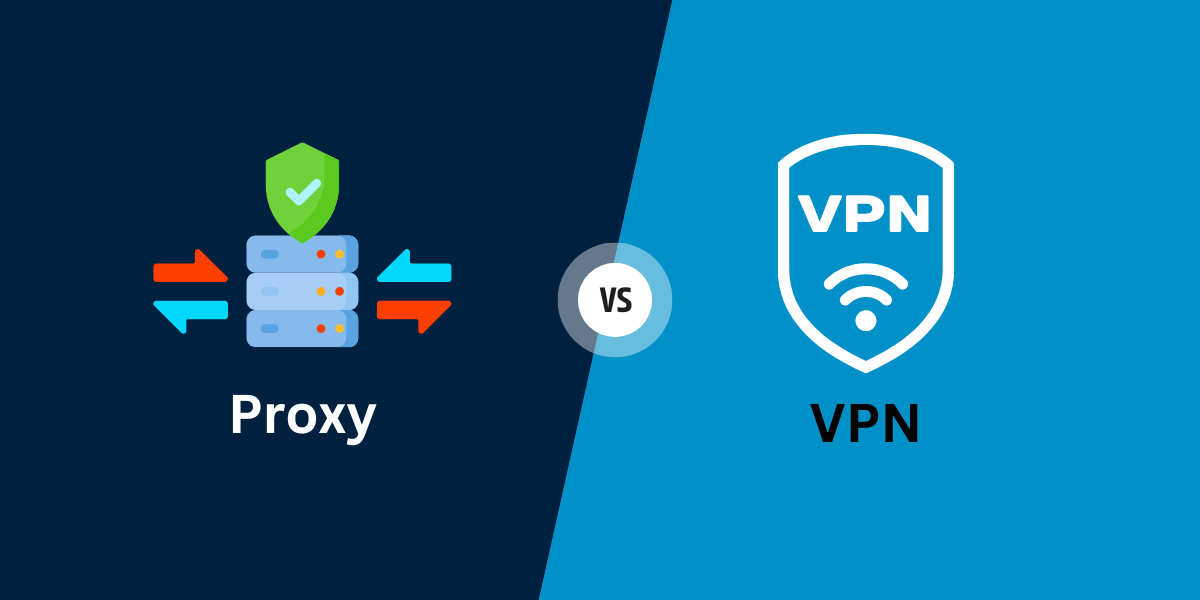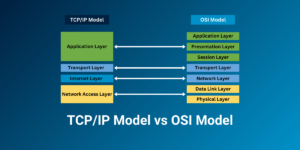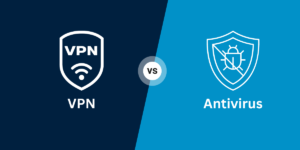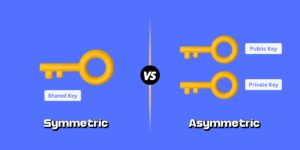Know the Difference Between Proxy and VPN
A Proxy and a VPN (virtual private network) are two technologies that allow you to hide your real IP address and encrypt your internet traffic. Both can help you access restricted content and websites anonymously. However, there are some key differences between proxies and VPNs in how they work and the level of privacy and security they provide.
In this comprehensive guide, we’ll explain exactly what proxies and VPNs are, how they work, and the main differences between them. We’ll help you decide which solution is better for activities like file sharing, torrenting, streaming, gaming, and bypassing censorship.
| Feature | Proxy | VPN |
|---|---|---|
| Encryption | Only encrypts data sent through proxy | Encrypts all internet traffic by default |
| Anonymity | Depends on proxy type used | Completely hides identity and IP address |
| Access to restricted content | Can bypass some geo-restrictions | Better at bypassing geographical blocks |
| Cost | Often free, but less reliable | Requires paid subscription, but more reliable |
| Ease of use | Just change browser settings | Requires installing client software |
| Traffic secured | Only traffic from proxied apps | Secures 100% of internet traffic |
| Logging and data | Free proxies may log/sell data | Paid VPNs typically don't log traffic |
| Speed | Generally faster connection | Encryption can slow speeds more than proxy |
| Reliability | Free proxies have lower uptime | Paid VPNs offer guaranteed uptime |
| Usage examples | Bypassing firewalls, accessing some blocked content | Public Wi-Fi security, torrenting, bypassing censorship |
Key Takeaways
- A proxy acts as an intermediary server that forwards your requests, while a VPN extends your private network through a tunnel.
- VPNs provide more robust privacy and security with full encryption. Proxies only encrypt the data requested through the proxy.
- VPNs work at the network level, while proxies work at the application level. So VPNs secure all your traffic, while proxies only secure traffic from specific apps.
- VPNs generally allow access to more websites and content than proxies. Proxies are more likely to be blocked.
- VPNs require monthly subscriptions, while proxies are often free. But free proxies are less reliable and may log/sell your data.
What is a Proxy Server?
A proxy server acts as an intermediary between your computer and the wider internet. When you connect through a proxy, internet requests from your computer first pass through the proxy server, which forwards your request to the destination website on your behalf.
The proxy retrieves the requested content (webpage, images, video, etc.) and returns it to you. This means the destination website doesn't see your real IP address—it sees the IP address of the proxy server instead.
A proxy server sits between your computer and the internet, forwarding requests so you can access online content anonymously. The proxy masks your real location and IP address from the sites you visit.
Some key things to know about proxy servers:
- They act as a "middleman" or intermediary between you and internet sites.
- They have their unique IP address that masks your real IP when browsing.
- They don't alter your internet connection type - just the pathway requests take.
- They only encrypt traffic for specific sites you route through the proxy.
- They are commonly used to bypass firewalls and access restricted content anonymously.
How Does a Proxy Server Work?
When you connect to a website through a proxy, here's what happens:
- You initiate a request to a website (for example, Google.com)
- Instead of going directly to Google's server, the request is routed first to the proxy server.
- The proxy server makes the request to Google on your behalf and retrieves the webpage content.
- The proxy server forwards the webpage content back to you so it loads in your browser.
- To Google, it looks like the request came from the proxy server rather than your real IP address.
You get the requested content, but your IP address and browsing data remain hidden from the destination site. The proxy directs web traffic without exposing your identity.
Different Kinds of Proxy Servers
There are a few different types of proxy servers:
- Forward proxies: These redirect traffic to any website. You can configure your browser or device to channel web requests through the forward proxy.
- Reverse proxies: These are used by websites and sit in front of a web server to manage traffic. Users don't directly interact with reverse proxies.
- Transparent proxies intercept traffic and proxy requests without you having to manually configure anything. Your system is redirected to the proxy.
- Anonymous proxies: These remove identifying information about you before forwarding requests. However, the proxy host can still see your traffic.
What is a VPN?
A Virtual Private Network (VPN) allows you to create a secure connection over a less secure network, such as the public internet. VPNs encapsulate your internet traffic and data in an encrypted tunnel that third parties cannot access.
When connected to a VPN, all your network traffic: including DNS requests and internet browsing: is securely routed through an encrypted VPN tunnel between your device and the VPN server. This prevents snooping and allows you to hide your IP address and physical location.
The key difference between a VPN and a proxy is that a VPN creates an encrypted network tunnel from your device straight to the VPN server. So, a VPN secures 100% of your internet traffic, while a proxy only secures traffic for specific websites or apps routed through it.
Some things to know about VPNs:
- They create an encrypted tunnel from your device to the VPN server.
- They hide your IP address and encrypt all network traffic by default.
- You need VPN client software to connect, which alters your internet connection pathway.
- They generally grant access to more restricted content than proxies.
- Paid VPNs are more reliable than free ones. Free ones often log/sell data.
How Does a VPN Work?
When you connect to a website through a VPN, here's what happens:
- You initiate a secure VPN connection, which creates an encrypted tunnel from your device to the VPN server.
- Your internet traffic is encrypted and routed through the VPN tunnel.
- The VPN server requests the website and retrieves the content for you.
- The content travels back through the encrypted VPN tunnel to your device.
Types of VPN Protocols
There are several different protocols that VPN services use to establish encrypted connections:
- OpenVPN: An open-source VPN protocol that uses SSL/TLS encryption. Provides the best security and the fastest speeds.
- IKEv2: Developed by Cisco and uses IPSec encryption. Provides good security and speed. Supported natively on some devices.
- L2TP/IPSec: Layer 2 Tunneling Protocol with IP Security. Built-in to most operating systems but has weaker encryption than OpenVPN.
- SSTP: Secure Socket Tunneling Protocol developed by Microsoft. Uses SSL encryption. Supported natively on Windows.
- WireGuard: A new protocol focused on speed and ease of use. Uses state-of-the-art cryptography. Still needs to be widely supported.
Main Differences Between Proxies and VPNs
Now that we've explained what proxies and VPNs are let's summarize the key differences between them:
- Encryption: VPNs encrypt all your traffic by default. Proxies only encrypt traffic to specific sites routed through them.
- Anonymity: VPNs provide complete anonymity by masking your real IP address. Proxy anonymity depends on the type of proxy used.
- Access: VPNs generally bypass more geographical restrictions than proxies. Proxies are more likely to be blocked.
- Cost: Reliable VPNs require a paid monthly subscription. Proxies can often be used for free but may need to be more secure.
- Ease of use: Using a VPN typically requires installing client software. Proxies can be configured in browser settings.
- Traffic secured: VPNs secure 100% of your traffic. Proxies only secure traffic from apps configured to use them.
- Logs and data: Paid VPNs typically don't log traffic. Some free proxies may log/sell your usage data.
- Speed: VPNs can slow your internet connection more than proxies due to encryption overhead.
- Reliability: Paid VPN services offer guaranteed uptime and connection quality. Free proxies are less reliable.
When Should You Use a Proxy?
Here are some of the main use cases where using a proxy server makes sense:
- Bypassing firewalls and filters: Proxies allow you to bypass content filters, firewalls, or blacklists at work, school, or imposed by your ISP or government.
- Accessing blocked content: In some scenarios, you may just need a proxy to access certain blocked or geo-restricted content rather than encrypting all your traffic with a VPN.
- Streaming sports and TV: Proxies provide an easy way to access region-locked streaming content on sites like BBC iPlayer, Hulu, Netflix, ESPN, etc.
- Online gaming: Proxies can reduce ping times in games by routing your traffic through servers closer to the game servers.
- Downloading content: Because proxies are faster than VPNs, they work better for downloading large files through torrents or file-sharing sites.
- Internet privacy: Forward proxies add a layer of privacy to your general browsing by hiding your IP address from sites.
- Public Wi-Fi security: Connecting through a proxy on public Wi-Fi prevents the network operator from seeing your browsing activity.
- Basic anonymity: Proxies' relative simplicity makes them appealing if you just want to hide your IP address occasionally rather than encrypt all your traffic.
When Should You Use a VPN Instead?
There are many situations where using a full VPN service provides major benefits over just routing your traffic through a proxy:
- Public Wi-Fi security: Using VPNs on public Wi-Fi is much safer than using a proxy, as a VPN fully encrypts all your traffic, not just web browsing.
- Torrenting & P2P: VPNs are better for masking your IP address when using BitTorrent and other peer-to-peer file-sharing networks to download or seed content.
- Streaming privacy: VPNs prevent your ISP from seeing the content you stream through services like Netflix, Hulu, YouTube, etc.
- Online gaming: While proxies can sometimes improve ping, VPNs are considered superior for anonymity and security when gaming online.
- Accessing blocked content: VPNs are better at bypassing geographical restrictions to access content blocked in your country or region.
- Online privacy: VPNs encrypt all your traffic and grant full anonymity from websites, advertisers, your ISP, and anyone spying on the network.
- Public Wi-Fi security: VPNs encrypt your data so no one can intercept it or compromise you on public networks.
- Internet censorship: VPNs allow you to bypass internet censorship and access the open web in restrictive countries.
- Online transactions: VPNs provide an extra layer of security for online banking, shopping, and sensitive transactions.
Can You Use a Proxy and VPN at the Same Time?
Yes, it is possible to use a proxy and VPN together for additional security. This forms a double-encrypted tunnel to protect your traffic.
The typical setup involves connecting to a VPN first, which encrypts all traffic. Then, your web browsing is routed through a proxy, which adds an extra hop before traffic reaches VPN servers.
The proxy masks what websites you visit from the VPN provider. The VPN encrypts the traffic end-to-end, shielding your data from the proxy and your ISP.
Using a proxy over a VPN is beneficial for:
- An extra layer of IP address masking when accessing geo-restricted sites
- Preventing your VPN provider from logging which sites you visit
- Added security on public Wi-Fi hotspots
- Bypassing firewalls or blacklists that block VPN server IP addresses
The downside is that routing traffic through both a proxy and a VPN tunnel can slow your connection even further. However, using both technologies together is an option for maximum privacy.
Free vs. Paid Proxy and VPN Services
There are both free and paid options for VPN and proxy services. In general, free services should be avoided in most cases:
- Free proxy sites often log your traffic data and sell it to third parties
- Free VPNs typically have much slower speeds, lower data limits, and fewer server options compared to paid services
- Free services need to make money somehow, usually by collecting and selling your usage data
- Free options don't offer the same guaranteed network reliability and uptime as paid services
- Free proxies may have malware or insecure configurations since no professional company is maintaining them
Paid services offer significant advantages:
- Paid VPN services don't log your activity and have guaranteed no-logging policies.
- Paid proxies like Luminati are managed networks with high speeds and reliability.
- Paid services offer much larger server networks, higher speeds, and better reliability.
- Paid subscriptions can connect multiple devices and often have unlimited data usage.
- Professional paid services have better apps, 24/7 customer support, and guaranteed service.
Final Thoughts
While proxies and VPNs both allow you to hide your IP address, VPNs are superior in almost every regard when it comes to privacy and security. VPNs encrypt your entire internet connection, while proxies only hide your IP address for web traffic.
VPNs also grant anonymous access to more websites and location-restricted content. The only advantage of proxies is that they are faster than VPNs for activities like streaming and downloading.
For most people who prioritize privacy and security, a reputable paid VPN service is the best option. However, proxies still serve niche use cases, such as bypassing firewalls or accessing geo-blocked content through simple browser setting changes.
Understanding the key differences between how proxies and VPNs work enables you to choose the best technology for your specific needs online.
FAQs about Proxies and VPNs
Is a proxy the same as a VPN?
No, proxies and VPNs are different technologies. A VPN creates an encrypted tunnel to route all your internet traffic through securely. A proxy server only forwards web requests from specific apps that are configured to use it.
Is a VPN more secure than a proxy?
Yes, VPNs provide much more robust security and privacy than proxies. VPNs encrypt all traffic, while proxies only encrypt requests.
Can I torrent anonymously with a proxy?
You can torrent through some proxies, but using a VPN is better for hiding your IP address when torrenting. VPNs encrypt your P2P traffic, while proxies leave torrent traffic exposed.
Are VPNs faster or slower than proxies?
Proxies are generally faster than VPNs since VPN encryption creates more overhead. However, paid VPN services offer much better speeds than free proxies.
What are the risks of using free proxy sites?
Free proxy sites often log and sell your usage data. They are also questionable in reliability and may be distributing malware. Paid proxies are more trustworthy.
Will a proxy hide my browsing from my ISP?
Using a forward proxy will hide your web browsing from your ISP, as they only see traffic flowing to the proxy. However, a VPN provides full traffic encryption to hide all your activity.
Can I get a virus from a proxy site?
Yes, free proxy sites run the risk of containing malware, spyware, adware, and viruses since no trusted company runs them professionally. Stick to paid proxies and VPNs.
Do I need a proxy to access Netflix from another country?
You can access international Netflix through proxies, but VPNs are generally better for bypassing geo-blocks and regional blackouts on streaming sites.

Jinu Arjun
 Verified Web Security Experts
Verified Web Security Experts
Jinu Arjun is an accomplished content writer with over 8+ years of experience in the industry. She currently works as a Content Writer at EncryptInsights.com, where she specializes in crafting engaging and informative content across a wide range of verticals, including Web Security, VPN, Cyber Security, and Technology.



